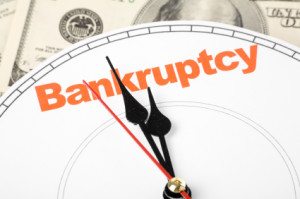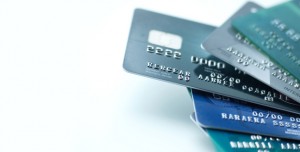May 15, 2019
 Running a small business can be incredibly stressful. Indeed, a study by Office works revealed that 45% of Australian small business owners feel that their stress levels have climbed in the last year.
Running a small business can be incredibly stressful. Indeed, a study by Office works revealed that 45% of Australian small business owners feel that their stress levels have climbed in the last year.
Naturally, the problems often stem from a shortage of cash. Getting a good business loan can be a huge help, but which type should you be most interested in?
No Assets? Try an Unsecured Bank Loan
This is a traditional bank loan. It isn’t secured against any assets or property, which means that it is a fairly high risk option from the lender’s point of view. If you don’t pay it back they will need to fight to get back their money.
Because of this, unsecured loans are typically more expensive than the secured type. They can also be awkward to arrange since the bank will have strict lending criteria. However, if you don’t have any assets it can be a decent option.
Got Assets? Ask for Secured Bank Loan
In theory, a secured bank loan should be quicker and a little bit easier to sort out than unsecured borrowing. The bank has the security of your assets, so it should also offer a lower rate and might offer a higher loan amount as well.
If you have assets then this can be a good choice. Yet, don’t expect it to be exactly easy to arrange. Banks usually aren’t the best option if you need to get hold of some money urgently and with little paperwork to be completed.
Poor Credit History? Get a No Credit Check Loan
This is a fast and easy type of small business loan. You are using an asset such as a vehicle of machinery as collateral. So, a no credit check loan can be sorted out pretty much instantly if you are in a hurry to get some cash flowing into the business.
It is a smart move when you have available assets but your credit history is poor. There is no need to jump through any hoops at the bank either, so if time is of the essence you will have fewer worries.
Want a Modern Approach? Peer to Peer Lending
This is a fairly modern approach to business borrowing that is now made available from a number of different internet sites. On the positive side, interest rates tend to be lower than with banks.
On the other hand, the lack of financial regulation in this sector of the industry might be off-putting for some people. In addition, it is sometimes necessary to take the loan out as an individual rather than in the name of the business.
A Slow Period of the Year? Look at Invoice Financing
Some businesses go through periodic slow periods when orders dry up and funds get tight. Invoice financing is a type of business loan that has been created to deal with this specific situation.
It is a way of borrowing against the money that you are due to collect from customers. Some firms that offer this facility will even take over the responsibility for collecting the money due to you on outstanding invoices.
Summary
There are now sensible borrowing method for small business with varying needs and situations. It is always worth taking some time to consider all of the available types of loan first of all.
Tags:
budgeting,
Business,
Business Loan,
Capital,
Debts,
economy,
Financial Panning,
Interest Rates,
loans
February 8, 2015
 Filing for bankruptcy is a drastic step in regaining your financial health, and the impacts are long-lasting. It is not something to be done lightly, or without weighing out all of your available options. If you are drowning in debt, however, bankruptcy can be a valuable first step in rebuilding your financial future.
Filing for bankruptcy is a drastic step in regaining your financial health, and the impacts are long-lasting. It is not something to be done lightly, or without weighing out all of your available options. If you are drowning in debt, however, bankruptcy can be a valuable first step in rebuilding your financial future.
GetFreeOfBills.com notes that bankruptcy comes in two forms: Chapter 7 and Chapter 13. While Chapter 7 allows you to discharge most debts, Chapter 13 requires you to follow a structured plan to repay your debts under more favorable terms. Depending on the amount of disposable income you have, you might be required to file Chapter 13. Regardless of which type you file, however, the pros and cons are generally the same.
Pros
- Clean slate: A bankruptcy provides a clean slate. It effectively resets your credit to zero, except for the debts that cannot be discharged such as student loans, recent back taxes, and child support. It provides you with the opportunity to stop making costly payments and provides you with more money to live on each month.
- Opportunity to rebuild: Some people believe that bankruptcy prevents you from ever having credit again, but this is not the case. Many people manage to build new lines of credit shortly after their bankruptcy, and it gets easier as time passes. While it is true that bankruptcy remains on your credit report for 10 years, its effects gradually lessen.
- Stopping adverse collections actions: If you are being hounded by creditors, facing foreclosure, or afraid that your wages will be garnished, bankruptcy can be a psychological relief. When you file for bankruptcy, you will receive an automatic stay from the court. This forces your creditors to cease all adverse collections activities against you. If you have a bankruptcy attorney, he or she will also act as a shield, handling creditors on your behalf.
- Exemption laws: Your home and car are generally exempt from bankruptcy, as long as you continue to meet your payment obligations. You are also entitled to a cash value for personal possessions. If you have a significant number of luxury possessions, you might be required to sell some, but the exemptions are generally high enough to let most people keep their personal items.
- Job protection: Although some employers will not hire applicants with a bankruptcy on their credit report, the job you already have is protected. It is illegal for an employee to be fired for declaring bankruptcy.
Cons
- Damaged credit: Bankruptcy is a major hit on your credit report. In the immediate aftermath of the bankruptcy, you might be unable to get any new credit at all. Although it usually does not take long to get new offers, you will fall into a high risk category for lenders. Expect to pay interest rates that are significantly higher than the ones you had prior to your bankruptcy. However, if you are in the position of filing for bankruptcy, your credit is probably already damaged. Some people find that the credit hit is much less significant than they anticipated.
- Filing costs: Filing for bankruptcy typically costs a few hundred dollars, depending on your location. Attorney’s fees are billed on top of that. However, in most cases you can make a payment arrangement if you can prove that paying a lump sum would present a financial hardship.
- Embarrassment: Although it is surprisingly common, filing for bankruptcy still carries a certain stigma. Some people worry that their loved ones will find out and ultimately think less of them for their decision. However, bankruptcy typically comes at the end of a long journey through mounting debt. Most people understand that sometimes life happens, and do not judge their friends and relatives for making a tough financial decision. Besides, having your home foreclosed or your car repossessed is not exactly a less embarrassing option. When taken seriously and only as a last resort, bankruptcy can actually be the smartest choice for some situations.
- Exempted debts: Some debts cannot be discharged in a bankruptcy, including recent back taxes, child support, and student loans. In addition, most people choose to keep their mortgage and car loan, if applicable. However, discharging your other debts will create more available money each month, which can then be diverted toward paying your remaining obligations.
Bankruptcy is not for everyone, but it is the best solution for many people. Attorney David M. Often of Get Free of Bills understands the complex decision-making process that is involved in determining whether bankruptcy is the right choice for you. Contact his office today for professional advice on how to proceed along your journey to financial freedom.
Tags:
Bankruptcy,
Bankruptcy Laws,
budgeting,
Credit Card,
Credit Card Debt,
Debts,
Financial Panning,
Laws,
money
January 30, 2013
 Over the last several years, the emphasis on mis-sold PPI has risen, rapidly. With increased numbers of people making PPI complaints, banks have to reimburse people left, right and centre for their own misdoings due to mis-selling payment protection insurance.
Over the last several years, the emphasis on mis-sold PPI has risen, rapidly. With increased numbers of people making PPI complaints, banks have to reimburse people left, right and centre for their own misdoings due to mis-selling payment protection insurance.
PPI is an optional policy that can be added on to a number of financial agreements, to help protect the borrower, should their circumstances change. Loan, mortgage and credit card protection are all eligible for this additional insurance that ensures payments are met in the event of redundancy or debilitating illness. With the economic climate the way it is at the moment, the threat of redundancy is a very real concept – if you were to take out a loan, you may feel the need to protect yourself just in case of this eventuality.
The problem is that in many cases, banks sold the policy to people that didn’t want, need or even know about it and this is why the rise in PPI has continued to skyrocket.
The recent decision by the financial watchdog, the FSA, has played a huge part in the PPI complaint boom. Last year, they instructed banks to write letters to known victims of mis-sold PPI, with between 4 and 12million in total expected to be sent to people all over the UK .
If you are one of these millions who have had, or are due to have, a letter through their letterbox, it can be the chance you need to claim back money that is rightfully yours. Don’t just throw it out, thinking of it as junk. If it’s a legit letter from your bank or finance provider, chances are you may be eligible for a claim and should bite the bit and go for it. The director the FSA thinks that only 10% of people who are written to will actually take the opportunity to claim, which is such a shame when there is billions to be paid out to people nationwide.
Last year, £1.9bn was paid out to successful PPI claimants , with the total redress looking like £13bn as of January 2013 . Industry insiders predict this value to so much as double to more than £25bn in reality , if all those eligible take the initiative to claim.
As the months go by, more and more people are claiming, with the volume of PPI complaints skyrocketing. At the moment, the banks are seeing approximately 100,000 claims sent to them each month , whilst the FOS has employed a staggering 1000 extra caseworkers to work solely on PPI cases . Whilst a number of these claims may be false or frivolous, many are genuine claims made by people who have been mis-sold PPI and you could be one of them.
With the British Bankers Association pushing for a deadline in PPI complaints, as soon as spring 2014, now is the time to claim your PPI payments if you haven’t done so already. After all, what have you got to lose?
Tags:
Coverage,
Financial Panning,
investments,
Law,
Legal,
money
 Running a small business can be incredibly stressful. Indeed, a study by Office works revealed that 45% of Australian small business owners feel that their stress levels have climbed in the last year.
Running a small business can be incredibly stressful. Indeed, a study by Office works revealed that 45% of Australian small business owners feel that their stress levels have climbed in the last year.


Recent Comments